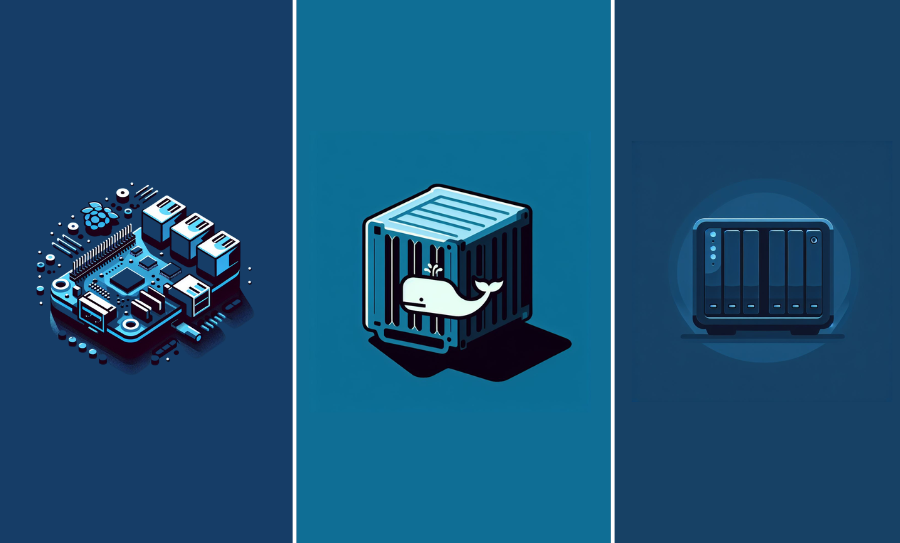At Fing, we understand the critical need for efficiency, security, and collaboration in the IT industry. Docker containers have revolutionized IT workflows by enabling professionals to optimize development, deployment, and management. By packaging applications and their dependencies into portable containers, Docker ensures consistency across environments, enhances productivity, and streamlines collaboration.
If you’ve ever wondered why IT professionals rely on Docker to streamline their workflows, keep reading to discover five compelling reasons that make it an essential tool in modern IT environments.
We recently launched a version of Fing Agent for Docker, allowing IT professionals to integrate our powerful network monitoring tools seamlessly into their containerized environments. Check out our announcement blog post.
What is Docker?
Docker is an open-source platform that automates the deployment, scaling, and management of applications through containerization. Containers bundle an application and its dependencies into a single unit that runs consistently across various computing environments. This consistency eliminates the notorious ‘it works on my machine’ issue.
Unlike traditional virtualization, which virtualizes an entire operating system for each application, Docker containers share the host OS kernel while isolating application processes. This makes them lightweight and efficient, requiring less overhead compared to virtual machines. Consequently, multiple containers can run on the same hardware without the performance drawbacks associated with multiple VMs, allowing IT professionals to maximize their resources.
Key components of Docker’s architecture include the Docker Engine, which enables container creation and management, Docker Hub, a repository for sharing container images, and Docker Compose, which manages multi-container applications.
This architecture not only streamlines development but also enhances team collaboration, making Docker an invaluable tool for IT professionals seeking to improve their workflows. Here are five reasons IT professionals love Docker containers.
1. Say Goodbye to “It Works on My Machine”
One of Docker’s biggest advantages is its ability to eliminate the infamous “it works on my machine” problem. Docker containers encapsulate everything an application needs — code, runtime, libraries, and dependencies — into a single, portable package. This ensures that the application runs identically in development, staging, and production environments.
🚀 Why it matters: IT teams can significantly cut down on troubleshooting time by ensuring consistency across all environments, reducing deployment headaches.
2. Resource Efficiency and Scalability
Docker’s lightweight architecture allows multiple containers to run on a single host without the overhead of virtual machines. Unlike traditional VMs, which require a full OS for each instance, Docker containers share the host OS kernel while maintaining application isolation. This results in improved performance and resource utilization.
💰 Pro tip: Docker’s efficiency allows IT teams to maximize hardware usage, reduce infrastructure costs, and scale applications effortlessly. Need more computing power? Just spin up additional containers on demand.
3. Perfect for Microservices
Modern applications are increasingly built using microservices, where different components operate independently. Docker containers make this architecture easy to manage by running each service in its own isolated environment. This modular approach allows developers to update or scale individual services without affecting the entire application.
🔗 Real talk: Updating one service without disrupting others means smoother workflows, less stress for your team, and a faster-evolving application.
4. DevOps and CI/CD Integration
Docker plays a crucial role in modern DevOps workflows, allowing development and operations teams to work seamlessly together. By integrating with Continuous Integration and Continuous Deployment (CI/CD) pipelines, Docker enables automated testing, faster iterations, and reliable releases. Developers can build, test, and deploy applications consistently across all environments.
💬 Quick analogy: Imagine Docker as a power strip for your applications — no matter the environment, everything connects and runs smoothly.
5. Security and Isolation
Security is a top priority for IT professionals, and Docker enhances application isolation. Each container runs in its own environment, preventing vulnerabilities in one application from affecting others. Built-in features like namespaces and control groups (cgroups) provide additional security by restricting resource access and enforcing separation.
🔒 Bonus: Organizations using Docker report fewer security incidents thanks to its containerization model, making it a reliable choice for sensitive applications.
Bonus: Run Fing Agent with Docker
For IT professionals who need reliable network monitoring, you can now install Fing Agent for Docker. This integration allows users to run Fing’s powerful network scanning and monitoring tools within a containerized environment. Whether on a Synology or QNAP NAS, or any Docker-supported platform, you can monitor network activity continuously with minimal setup.
💡 Why it’s great: IT consultants and MSPs can run network diagnostics and monitoring without dedicating separate hardware, ensuring 24/7 network visibility. Find out more information here.
Final Thoughts
Docker is more than just a tool — it’s a game-changer for IT professionals. Whether you’re looking for consistency across environments, better resource utilization, seamless microservices management, or enhanced security, Docker has you covered. With the added ability to run the Fing Agent for top-tier network monitoring, Docker is a must-have in any IT toolkit. Once you start using it, there’s no going back!






